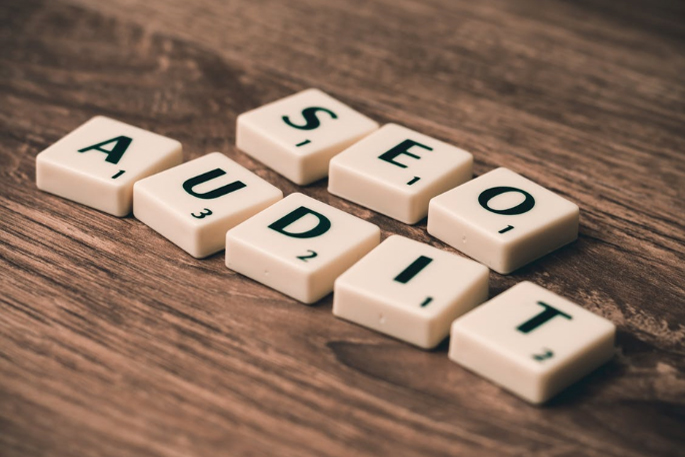Google has provided a list of questions to determine whether our sites are designed to help people or perform well in search engines. Naturally, the former is better, but if, in your case, the latter stands true, you may have been hit with a site-wide signal that makes ranking difficult.
We believe that this update will have a significant impact, and if it does, we may be in for another seismic shift in the world of SEO, similar to what occurred after the release of Penguin ten years ago.
If you have concentrated your efforts on SEO rather than creating content for your audience’s consumption, this could significantly influence your site. However, it is yet to be seen how effective this ranking signal is.
What is Google’s New Helpful Content Update?
Put people first in your content.
The helpful content update aims to reward better content where visitors feel they have had a satisfying experience, whereas content that fails to meet a visitor’s expectations will perform poorly.
How can you ensure that your content will be successful with Google’s new update? You can do so by adhering to long-held advice and guidelines to create content for people rather than search engines.

Who Are the Ideal Content Creators as Per This Google Algorithm Update?
People-first content creators who prioritize creating engaging content while also utilizing SEO best practices to provide additional value to searchers are the ones that are ideal for this new Google algorithm update. So, if you answer yes to the following questions, you are probably on the right track with a people-first approach, and you might be closer to new Google updates than you think:
- Do you have an existing or intended target audience for your business or website that would benefit from the content if they came to you directly?
- Is your content straightforward in demonstrating first-hand expertise and depth of knowledge (for example, expertise gained from using a service or a product or visiting a destination)?
- Is there a primary goal or focus for your website?
- Will someone leave your content feeling they have learned enough about a topic to help them achieve their goal?
- Will someone who reads your content feel satisfied with their experience?
- Are you following Google updates recommendations for core updates and product reviews?
Does Google's Helpful Content Update Affect All SEO-Optimized Websites?
In their blog post, Google was careful to point out that this update does not render the current SEO best practices obsolete. “SEO is a helpful activity when applied to people-first content,” said Google, linking to their SEO starter guide. Google is not opposed to search engine optimization.

This update is aimed at sites that have gamed the system by creating content that is not particularly useful to people but still ranks well due to SEO rather than the quality of the content on the site.
Is It a Punishment for Sites?
Google is cautious in stating whether this is a punishment or a penalty. It is not a manual operation and will not be listed in Google Search Console. Neither is it a spam action. Instead, it is supposed to be called a signal.
This is one among the many ranking signals described by Google in their ‘How Search Works’ documentation. If that signal is applied to your website, it will almost certainly feel like a penalty. But the excellent news is that if you improve your content, you can have this classification removed from your site.
The section of Google algorithm update that classifies sites for these Google updates will run indefinitely. If the algorithms notice that your site’s content has shifted to be more helpful to searchers, the signal’s strength may be reduced or even removed entirely.
This announcement is reminiscent of Google’s Penguin and Panda algorithms in their early days. These algorithms are now baked into the core algorithm but were initially applied as filters to affected sites. So, for example, sites with unnatural links (Penguin) or low-quality content (Panda) would have their ranking suppressed.

If those sites cleaned up their link profiles or improved the quality of their content, they would have a better case of recovering the next time Google ran a Penguin or Panda update.
It appears that the helpful content classifier from the new Google updates will have a similar effect in that sites affected will experience some level of site-wide ranking suppression, which can eventually be lifted. There are, however, some significant differences:
- The helpful content classifier is constantly running in real-time. This means new sites explicitly built for SEO should have the signal applied from the start. Existing sites may also be impacted if the amount of content created for SEO purposes exceeds a certain threshold.
- Sites will be impacted over time and to varying degrees depending on the amount of unhelpful content discovered. Google will not run specific updates to help sites recuperate. Rather, if the classifier figures that content has changed and is now considered helpful to searchers and has remained so for a few months, the weight of the de-ranking signal will be reduced or even lifted.
How Do You Know If Your Content is Primarily Focused on Search Engines?
When applied to people-first content, SEO is a beneficial activity. On the other hand, content created primarily for search engine traffic is strongly associated with content that searchers find unsatisfying.
How do you avoid relying solely on search engines? Unfortunately, answering yes to some or all of the questions is a red flag that you should reconsider how you create content for your website:
- Is the content created primarily for search engines rather than for humans?
- Are you creating a lot of content on various topics in the hopes that some of it will rank well in search results?
- Do you use a lot of automation to create content on a variety of topics?
- Are you primarily summarising what others have said while adding little value?
- Are you writing about things just because they appear to be trending rather than because you would write about them otherwise for your existing audience?
- Is your content leaving readers with the impression that they need to go back and look for more information from other sources?
- Are you writing to a specific word count because you have heard or read that Google prefers a certain word count?
- Did you decide to enter a niche topic area without any real expertise but instead primarily to gain search traffic?
- Is your content promising to answer a question that has no answer, such as implying a release date for a movie, TV show, or product that has not been confirmed?
How Does this Google Update Work?
This Google update adds a new site-wide signal to the mix of signals considered when ranking web pages. The Google systems detect content that appears to have little value, low added value, or is otherwise unhelpful to those conducting searches.
Any content (not just unhelpful content) on sites determined to have a relatively high amount of unhelpful and irrelevant content overall is less likely to perform well in Search, assuming that there is other content on the webpage that is better to display. As a result, removing unhelpful content may improve the rankings of your other content.

Some may guess how long it will take for a website to improve after updating or removing irrelevant information. The signal may be applied to sites recognized by this update over months. This Google update’s classifier runs continuously, allowing it to monitor newly launched and existing websites. As it becomes clear that the unhelpful content will not reappear in the long run, the Google classifier will not prevail.
Using a machine-learning model, this classifier process is entirely automated. It is neither spam nor manual action. Instead, it is just a new signal, one of many that Google considers when ranking content.
This means that some people-first content on websites with futile content may still rank among the top if other signals figure that people-first content as relevant and helpful to a query. The signal is also weighted; web addresses with a high volume of unhelpful content may see a more substantial impact. In any case, ensure you have removed any unhelpful content and are following all of the Google guidelines for the best results.
To begin, this Google update currently only affects English searches globally. However, Google intends to expand to other languages in the future. Google will also continue to improve how the classifier detects unhelpful content and launch new efforts to reward people-first content in the coming months better.
Upgrade Your Website's SEO as Per Google’s Helpful Content Update with One Digital Land
With our years of expertise and experience, we understand old, existing, and upcoming Google algorithm updates inside and out.
Our extensive keyword research enables us to create content that your target audience is looking for. Not just that, our content also focuses on providing value and information to your target audience so when they visit your page, they know they will find what they are looking for.
One Digital Land is your go-to to create SEO-friendly content that provides value to your audience and ranks higher on search engines.

So, if you are overwhelmed with all the new changes and guidelines you will need to follow to stay afloat with Google’s new Helpful Content Update, One Digital Land is here to take care of all the new guidelines and changes for you.

